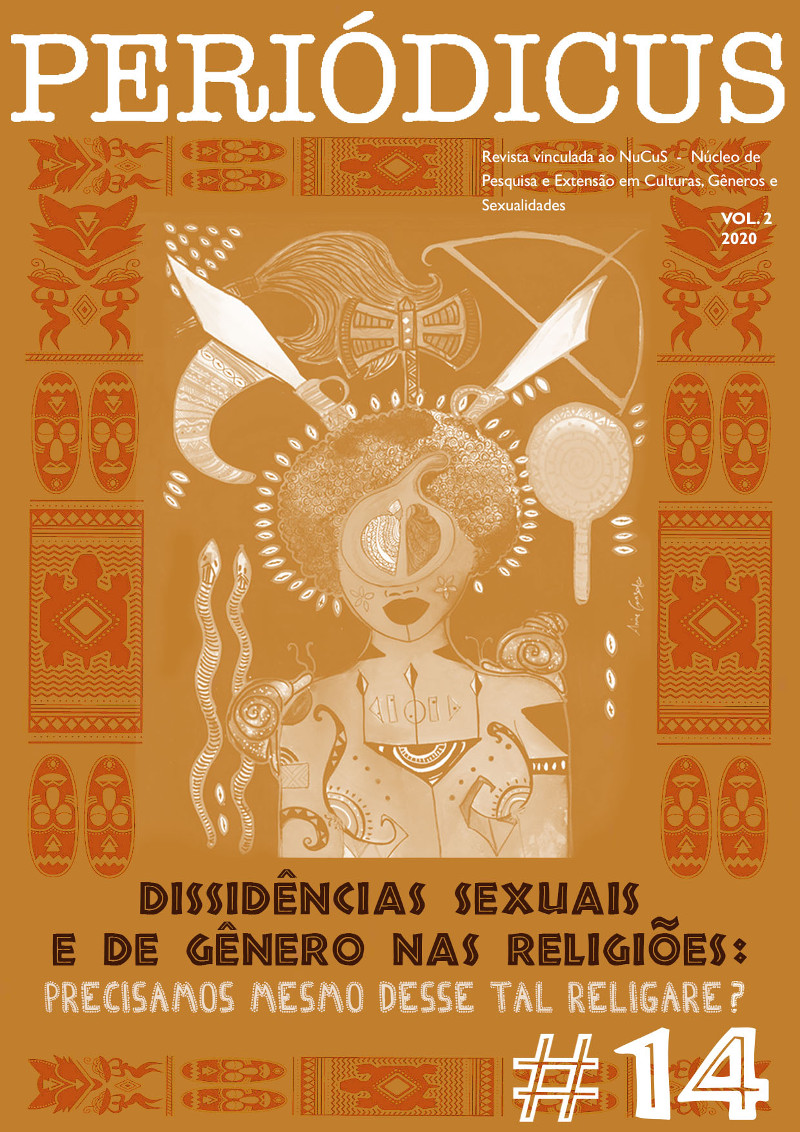“Against the tide”: a view at the ways of being a gay man
DOI:
https://doi.org/10.9771/peri.v2i14.31882Abstract
Abstract: Our paper seeks to understand the meaning of being a gay man. Using a qualitative and documentary research,in an existential phenomenological approach based on Heidegger, six cisgender gay men’s narratives transcriptions shown
in the movie Bichas, o documentário were analyzed, in light of Analytical Sense. From the analysis of the narratives, and
in dialogue with the academic literature on masculinities, we could reflect upon the narrators experience as gay men,
revealing a meaning: being a gay man proved to be a way of being accompanied by suffering and resistance. According to
this unveiling, we also raise some thoughts and questions about the duty of Psychology in an ethical-political dimension, in
the understanding and accompaniment of the phenomena emerging from LGBTI community and psychologist praxis.
Keywords: Masculinities. Gay men. Clinical psychology.
Downloads
Downloads
Published
How to Cite
Issue
Section
License
Copyright (c) 2021 Enny Ewerton Ferreira Santos, Suely Emilia de Barros Santos, Jailton Bezerra Melo, João Ricard Pereira da Silva

This work is licensed under a Creative Commons Attribution-NonCommercial 4.0 International License.
Authors who publish in this journal agree to the following terms:
Authors retain copyright and grant the journal the right of first publication, with the work simultaneously licensed under a Creative Commons Attribution Noncommercial License that allows the work to be shared with acknowledgment of authorship and initial publication in this journal, but prohibits commercial use.
Authors are authorized to enter into separate additional contracts for non-exclusive distribution of the version of the work published in this journal (e.g., publishing in an institutional repository or as a book chapter), with acknowledgment of authorship and initial publication in this journal.
Authors are permitted and encouraged to publish and distribute their work online (e.g., in institutional repositories or on their personal website) at any point before or during the editorial process, as this can generate productive changes and increase the impact and citation of the published work (see The Effect of Open Access).








